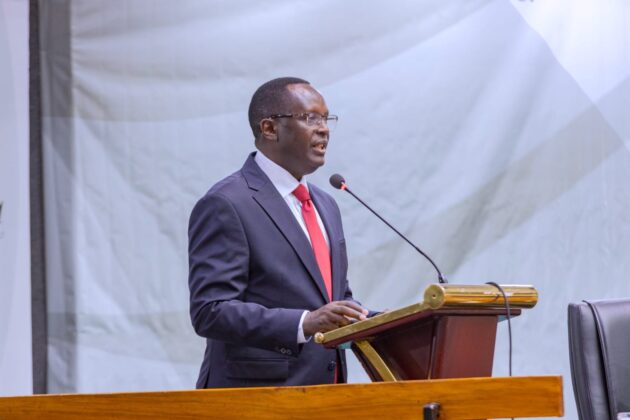
Prevalence of hate speech, incitement threat to global peace: Rwanda » Capital News
NAIROBI, Kenya, Apr 5 — Rwanda’s High Commissioner to Kenya Martin Ngoga has expressed concern over what he describes as worrying trends of hate speech and incitement to violence across the globe amid heightened geopolitical tensions.
Speaking Thursday during the Conference on the 30th Commemoration of the Genocide against the Tutsi in Rwanda, Ambassador Ngoga warned that these phenomena pose significant threats to stability and the future of humanity.
He implored global leaders and citizens to draw lessons from the tragic events of the 1994 genocide against the Tutsi in Rwanda, which resulted in the loss of approximately a million lives, and embrace peace.
He stressed that the widespread proliferation of hate speech and incitement to violence echoes the dangerous rhetoric observed before the Rwandan genocide.
“As we renew our resolve to prevent such atrocities from ever happening again, we are seeing dangerous trends of rising hate speech and intolerance in many parts of the world,” Ngoga observed.
“Particularly troubling is the current widespread proliferation of hate speech and incitement to violence,” he explained, adding hate speech and incitement “were very clearly present in Rwanda immediately before the genocide”.
Ambassador Ngoga was addressing a gathering at the Kenyatta International Convention Centre (KICC) in Nairobi.
Reflecting on the genocide against the Tutsi, Ambassador Ngoga characterized it as one of the “most disturbing chapters in human history.”
While emphasizing the importance of honoring the memories of the victims, the Rwanda High Commissioner to Kenya called on the world to do whatever to prevent such atrocities from recurring.
Further, Ambassador Ngoga underscored the significance of understanding the root causes of genocide and addressing systemic failures to prevent future violence.
He emphasized the role of education, remembrance, and justice in fostering reconciliation, preventing genocide, and promoting reconciliation.
“This Conference therefore holds great significance as it provides us with an opportunity to come together, exchange ideas, reflect upon one of the darkest chapters in human history, and collectively strive towards a future built on understanding, reconciliation, and peace,” he said.
He added that it is everyone’s moral obligation to ensure that the voices of the innocent lives who perished during the genocide are heard, their stories told, and their legacy preserved for future generations.
Ambassador Ngoga said that it is equally important that other internationally recognized genocides are taught globally so that the younger generations have sufficient knowledge of the atrocities.
While commemorating the victims, Ambassador Ngoga faulted the international community for its inadequate response to the genocide against the Tutsi.
He noted that the world must learn from this failure and commit themselves to preventing similar atrocities in the future
The Ambassador called on the international community to support efforts to prosecute individuals involved in genocidal acts, emphasizing the importance of accountability in preventing future atrocities.
“It is therefore imperative for the international community to support efforts to prosecute and bring to justice those who orchestrated and carried out the genocide against the Tutsi,” he said.
The Ambassador noted that justice is the cornerstone in preventing genocide and ensuring accountability for the perpetrators.
